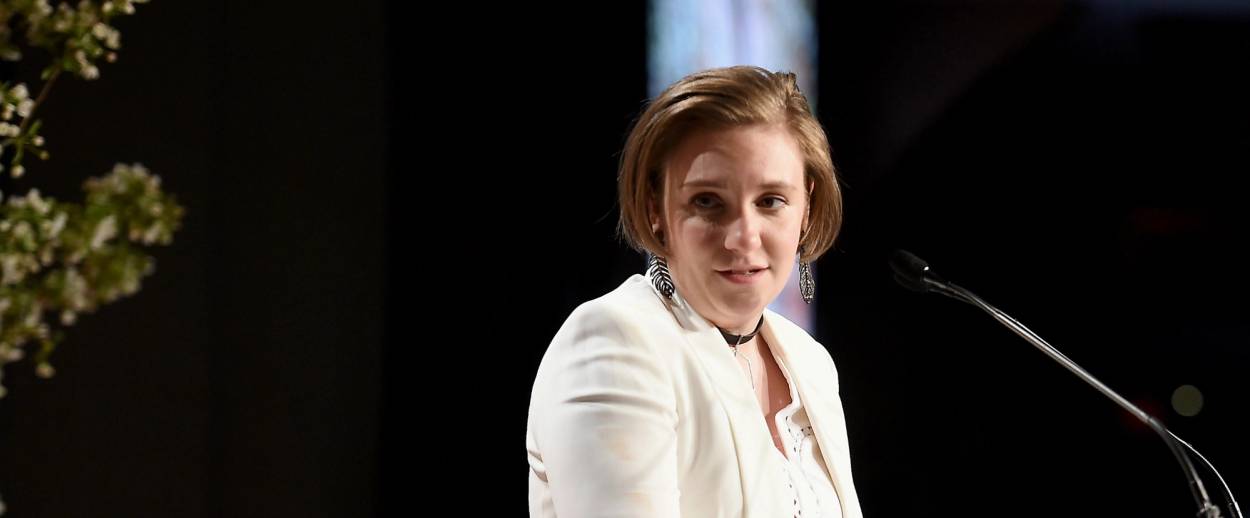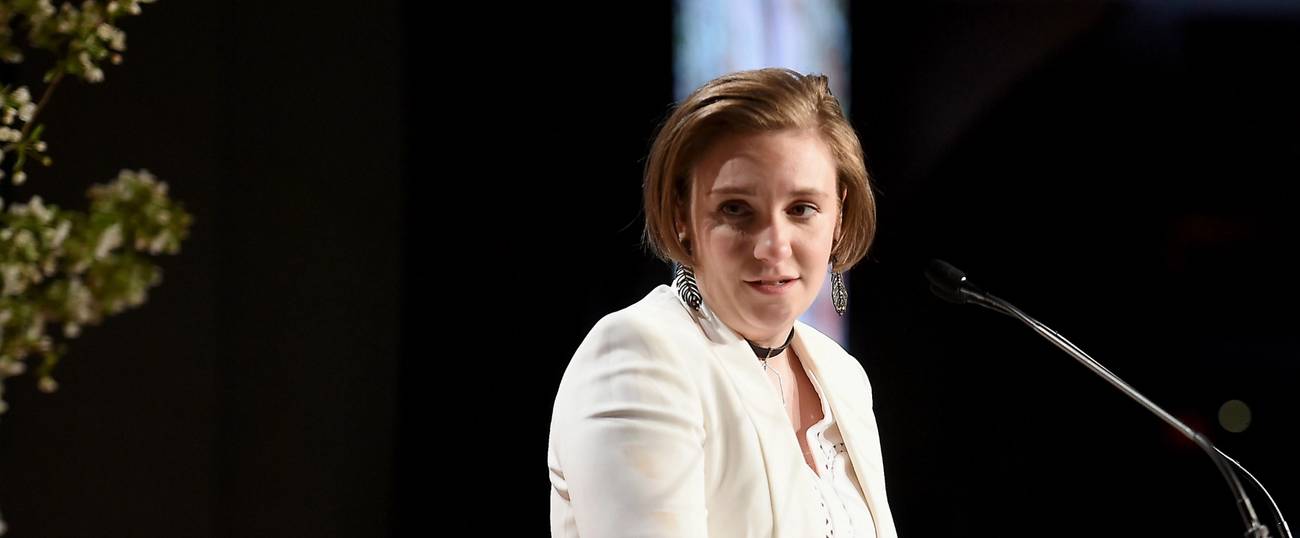Lena Dunham Dreams of Sushi
But not, like, that culturally appropriated sushi foodstuffs that Oberlin serves its student body




After these past few weeks of violence, death, and paralyzing despair, I can’t even begin to tell you how excited I am to have the opportunity to complain about something completely trivial—and I hope you’re equally excited to read about it! We both deserve a break from this summer of craziness, and this news here—about food and Lena Dunham’s opinion about some of it—provides us with a doozy.
Surprise, surprise: Students at Oberlin College are complaining that the school is engaging in “insensitive” behavior by serving “culturally appropriated” food in its dining halls. Or as any person living in the United States of America—which has presumably appropriated virtually every aspect of its culture, culinary and otherwise, from immigrants—might call it: food. (One exception to said American appropriation, of course, is anything pertaining to Native American culture, which, given the kind of shit Internet trolls give to any hapless sorority girl wearing a feathered headdress at Coachella, is obviously the most egregious cultural appropriation of all.)
But the chief offender? Sushi, or at least, the insulting facsimile which is served by the low-wage workers in Oberlin’s student cafeterias. “The undercooked rice and lack of fresh fish is disrespectful,” wrote Tomoyo Joshi, a junior, in the college paper. “When you’re cooking a country’s dish for other people, including ones who have never tried the original dish before, you’re also representing the meaning of the dish as well as its culture. So if people not from that heritage take food, modify it and serve it as ‘authentic,’ it is appropriative.”
So unless you’re the rare college student able to afford the $595 omakase menu at Masa, or better yet, somehow get yourself to Toyko and back before your 2:30 sociology class, then sorry, but sushi is not for you. Better grab a slice of pizza (appropriated from the Italians and disgustingly bastardized), or a sandwich (appropriated from the Earl of Sandwich), the soggy overstuffed likes of which should be stuffed into your sad, undereducated, problematic little mouths, dear Oberlin kids.
I have to say though, I do kind of get it coming from Joshi, who is actually from Japan and thus probably is genuinely troubled by the pre-packaged spicy tuna rolls being gobbled up by her classmates. You see, if I learned one thing from Jiro Dreams of Sushi, it’s that that the Japanese take these things very seriously.
Odder yet is the affirmation offered by Oberlin’s most famous and emblematic alum, Lena Dunham who, in an interview with Food and Wine, pronounces herself a fellow traveler to the cause of making sure nobody gets to eat a mediocre hijiki salad or less than authentic banh mi between classes: “There are now big conversations at Oberlin, where I went to college, about cultural appropriation and whether the dining hall sushi and banh mi disrespect certain cuisines,” the Girls star told the magazine. “ The press reported it as, ‘How crazy are Oberlin kids?’ But to me, it was actually, ‘Right on.’ ”
My first reaction to this was: OK, Lena. If you want to hire an authentic sushi chef and start flying live eel in from Japan every other day, I’m sure nobody at Oberlin will protest (except I don’t even want to think of the carbon footprint for that, so my bad.)
But my second thought was: What the hell are we doing here? When did absorbing the best parts of other people’s cultures—allowing them to influence your thinking, your tastes, your palate; expanding your comfort zone so deeply and intrinsically that ideas, tastes, perspectives that are not inherently your own become a part of you—become a bad thing? America is cultural appropriation.
Rock n’ roll comes from blues, which came from black spirituals and work songs, which evolved from the oral traditions of Africa. American democracy was based on the British parliamentary system, which adapted it from Rome who got it from Greece. And so on, and so on. In these divided times, we need fewer walls, fewer classifications, fewer rules about what belongs to who and who doesn’t deserve what. I’m not saying it’s cool to go run around in blackface with a tomahawk making racist jokes about Gypsies, but let’s just take a beat and think what this country would be like if one of the many peoples who make up the contents of this vast melting pot (or salad bowl, or whatever analogy you mind most apt)—for the sake of argument, let’s say the Jews—decided to end all appropriation of any of the contributions they feel they’d made to culture. Like chicken soup. Or the movies. Or musical theater. Or accounting. Or irony.
I’m being facetious, obviously. But if the world seems impossible to imagine without any of those things, that’s as it should be. We are all part of America, and sampling one another’s often delicious culture is part of the package. Even if that package contains a really uninspiring California roll.
Previous: ‘Girls’ No More
Rachel Shukert is the author of the memoirs Have You No Shame? and Everything Is Going To Be Great,and the novel Starstruck. She is the creator of the Netflix show The Baby-Sitters Club, and a writer on such series as GLOW and Supergirl. Her Twitter feed is @rachelshukert.